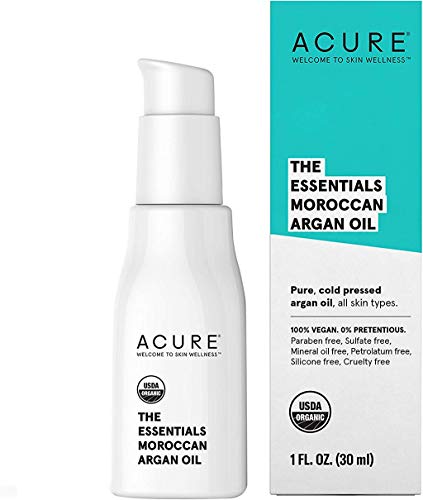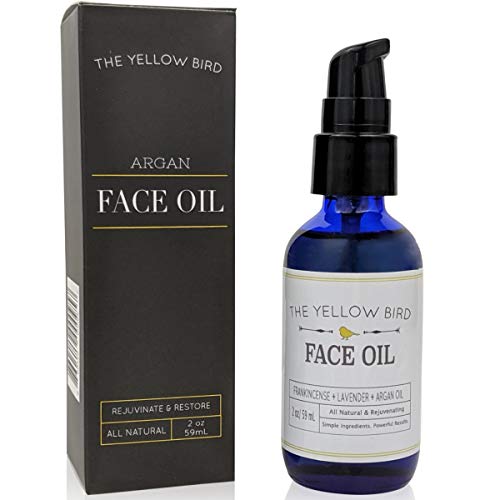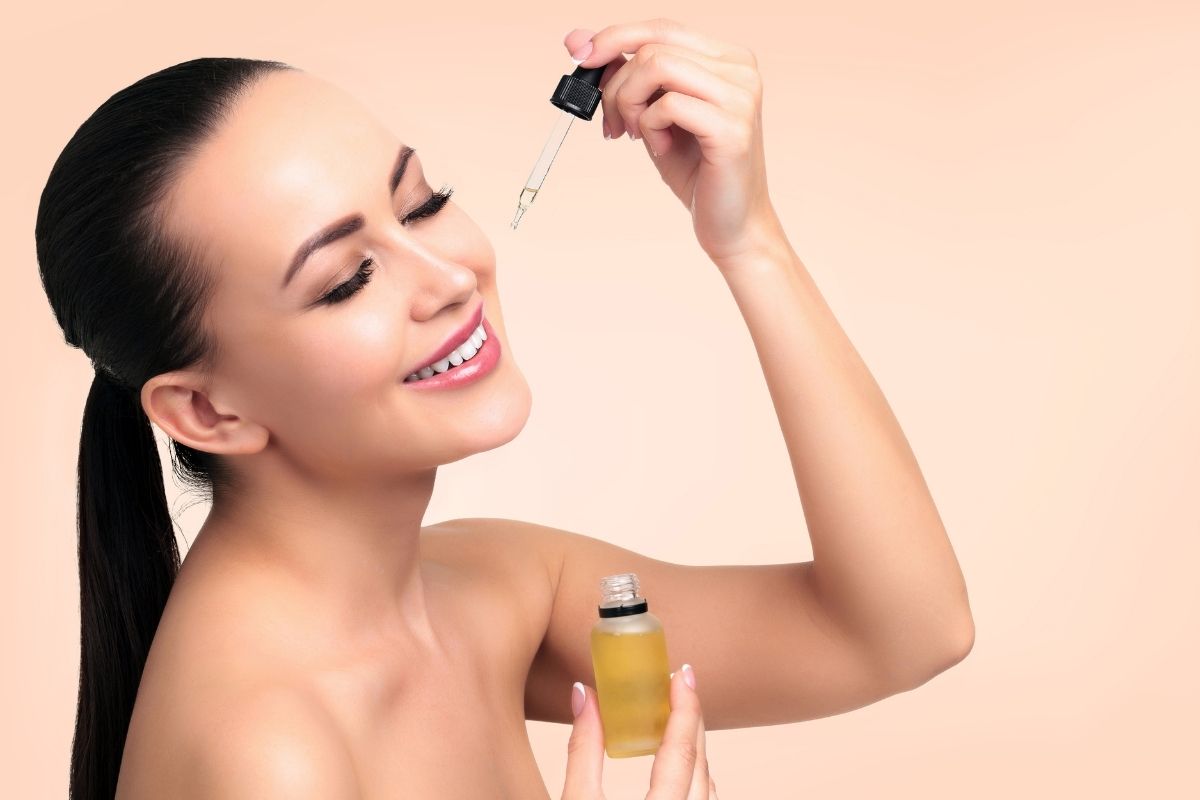Does argan oil clog pores? This is one question that many people who are obsessed with argan oil because of skin benefits ask. Argan oil is often cited as an incredibly beneficial skincare product for a variety of skin types. Even though the naturally occurring product has been around for years and used by many people over generations, its relatively recent rise in the pop culture skincare world has opened doors for many.
However, we all know that whenever a product goes mainstream, we’re all guilty of obsessing and in terms of stuff we put on our face, applying in excess may or may not be a good idea. Today, let’s find out whether argan oil clogs your pores…
Benefits of Argan Oil
First and Foremost, we should establish the benefits of Argan oil. Historically, Moroccan women have utilized Argan oil’s antioxidant properties in order to protect the skin from harsh UV rays. As a result, the UV protectants keep the skin from burning and developing hyperpigmentation. Researchers have even said that it may protect against skin cancer (melanoma included).
Perhaps the most commonly known use for Argan oil is as a moisturizer. The oil’s abundance of the fatty antioxidant vitamin E is used in soaps, hair conditioners, and lotions. Next to moisturization, argan oil is also associated with an overall healthy-looking complexion. Thus, it seems almost obvious that argan oil serves as an anti-aging treatment.
What many people may not know is argan oil’s healing properties, made effective by antioxidants, antibacterial, and anti-inflammatory qualities, which in turn reduce symptoms of skin conditions such as psoriasis, atopic dermatitis, and rosacea. However, many experts agree, argan oil’s healing benefits are best taken care of through oral supplements, as is the case with argan oil’s ability to treat wounds that have already started to close.
No one wants acne, which is caused by high levels of sebum through hormone development. Argan oil’s anti-sebum powers, in other words, the ability to cleanse the skin of excess oil, regulates acne relatively well, leading to a smoother complexion and an overall consistent skin experience.
Does Argan Oil Cause Breakouts?
Argan oil is made from compressing the nut of the argan tree; the tree and hence the oil is native to Morocco. Though the oil is processed for cooking and eating through roasting, argan oil for cosmetic and skincare purposes is kept raw.
Since argan oil’s jump in popularity, it has been touted as not only another great semi-natural moisturizer, but also an option that’s least likely to cause breakouts. The oil, which contains fatty acids galore, is mainly 18% saturated (SFA), 46% monounsaturated (MUFA), and 36% polyunsaturated (PUFA). Unfortunately, the 36% polyunsaturated fat is argan oil’s downside.
Argan oil’s highly concentrated vitamin E is usually perceived as an ideal cure for acne, as it strips away unnecessary fats, and preserves others. Its contents of carotene, squalene, antioxidant polyphenols (catechins, caffeic acid, and vanillic acid) may seem like a bunch of fancy words, but they all participate in protecting the skin from acne.
There really wouldn’t be a problem with using Argan oil if it wasn’t for the large percentage of polyunsaturated fat. The issue comes from polyunsaturated fats experiencing lipid peroxidation, where the fatty acids break down into dangerous end-products that oversaturate the skin and damage cell membranes; this can irritate and inflame acne-prone skin.
However, problems caused by unsaturated fat are cause for concern when using argan oil in heavy amounts. When using argan oil, one can deduce that small, raindrop-sized amounts are sufficient. In addition, those with oily and dry skin types should remain cautious when applying it.
Since oily and dry skin types are both on the opposite, but extreme ends of the spectrum, argan oil and any oil for that matter can result in an unwanted reaction when not introduced to the skin gradually. Furthermore, in finding out whether argan oil causes breakouts, a lot is not only dependent on the amount used, but also the age of the oil and method of pressing when packaged.
The older argan oil is after being pressed, the more its unsaturated fat content is susceptible to activation. The oil can also oxidize and therefore lose any benefits that would be gained from vitamin E. Of course, it’s very difficult to determine just when a container of oil has been packaged unless stated, but you can find out how the oil was pressed. Cold-pressing is the most preferred method as it maximizes beneficial fats and minimizes irritants.
Can I Use Argan Oil on My Face Everyday?
No one should use any sort of oil on their face in excess as this can definitely over-saturate the pores. Especially for sensitive skin types, oil should be introduced gradually once a day for two to three days per week, which will help determine whether the skin reacts with redness and breakouts.
After it is determined that argan oil does not cause a reaction, adapt the oil into the regular skincare schedule while also continuing to make sure that it is only applied several days a week rather than every day. In the case of most other skin types, it is okay to use a dot of argan oil on a consistent basis in the morning and night.
Is Argan Oil Good for Large Pores?
Depending on your skin type, it’s unlikely that argan oil would clog pores. Therefore, it is often used as a tightening treatment for the skin, or rather, a way to give the skin a revitalized and naturally airbrushed base. In other words, we’re talking about tightening the skin. Like many plant oils, argan oil is used to even out fine lines and increase skin elasticity, thus decreasing the size of pores.
Its anti-aging and tightening properties are all thanks to the high linoleic acid content in argan oil specifically. In addition, omega-3 fatty acids that are also in argan oil have been said to boost collagen production, thus contributing to tightening and anti-aging benefits. After balancing out the skin, the oil can then work to expand and contract with the skin and infiltrate the pores without the danger of blemishes.
While you can use the oil for tightening large pores by using it straight from the bottle, many skincare experts recommend that you combine a small amount of oil into your daily moisturizer. You should be patient with seeing results, though, as keeping a consistent application schedule and letting the skin adapt to the oil is key.
Side Effects of Using Argan Oil on the Face
With so many benefits discussed so far, it seems that the potential dangers of argan oil are nothing to be concerned about. However, like any great product, there are also side effects. Argan oil, first and foremost, always has a chance of irritating the skin. Since every person’s skin is different, experimenting with the oil first is even more important. Otherwise, diving straight into using may cause irritation and even a rash.
Furthermore, although argan oil is made from stone fruit, it can potentially trigger people with tree nut allergies. The solution? Once again, the best way to avoid a disastrous mishap is to test the oil first and in this case, apply the oil to a patch of skin that isn’t often subject to much sunlight and watch for any irritation. More often than not, though, really dangerous and/or rare consequences that come with argan oil are through oral supplements rather than topical application.
List of Best Argan Oils for Face
So now we’ve arrived at discovering which argan oil is the best for your face. To start off, argan face oils are found everywhere from beauty shops to standard drug stores, so it’s important to select one that is safe and trusted.
Any argan oil you do purchase, however, should be in a glass bottle with a dark tint, typically amber. The tint and glass help decrease the amount of deterioration in the oil that would otherwise occur through the sun.
Furthermore, argan oil shouldn’t be stored in a heavily lit area such as an open shelf, and neither should it be exposed to heavy humidity from the shower. Rather, the oil should be stored in a closed cabinet in a dry space. To help your search, here’s a list of some of the best argan oils for the face.
Acure Cold-Pressed Morrocan Oil

Acure’s oil is 100% unrefined argan oil and cold-pressed by hand, which keeps precious fatty acids intact. In addition, the oil is sourced from an all female co-op in Morocco and although there might be a concern that the oil isn’t packaged in an amber bottle, they are UV etched instead, leaving them equally protected.
Josie Maran 100% Argan Oil

While this argan oil is on the more expensive side in comparison to others on this list, the quality is worth the price. Maran’s unrefined oil avoids feeling heavy or sticky on the skin. Instead, the oil is light, absorbent, and free of any additives that would otherwise decrease the quality.
Pura D’OR Argan Oil

This oil is great for anyone who dislikes earthy scents in skincare as it is practically odorless and absorbs like a dream. Its premium grade solution and semi-viscous consistency ensures that no drop is wasted.
The YellowBird Argan Face Oil

This highly rated oil is cold-pressed and stored in a blue-tinted bottle with a pump for appropriate dosage. In addition, it is also vegan and cruelty-free, as well as processed and shipped from the U.S, ensuring the oil’s freshness.
Cliginic Argan Oil

Cliginic is 100% pure argan oil and comes straight from the trees of Morocco. Its USDA certification places it high on the list as one of the most undiluted and pure options. One of the best benefits of the oil is that it’s half the price of most other top-rated argan oils.
Conclusion
So among the many benefits of argan oil, we have also discussed particular things you need to be wary of. Without a doubt, argan oil is a well-tested and true skincare addition to your routine that will bring something new to the table, rather than sitting beside 3 other products that do the same thing.
However, when asking the question of whether argan oil will clog your pores, the chances for disastrous breakouts are low, but ultimately the answer comes down to you. Everyone’s skin is different and argan oil should be introduced with care and caution.


